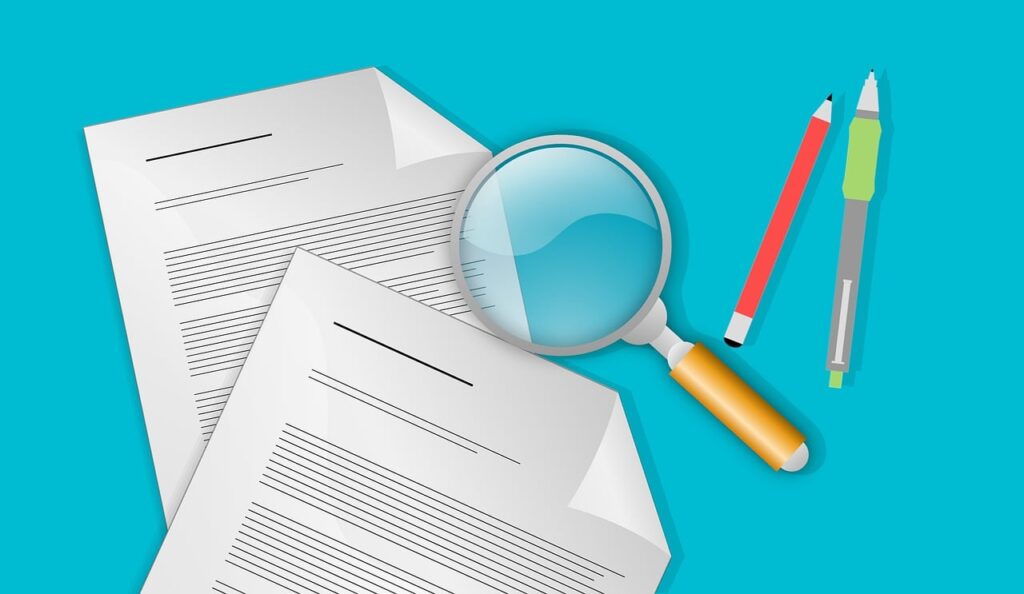
Forensic accounting, an investigative branch of accounting, focuses on uncovering fraudulent activities, financial disputes, and other financial malpractices. Its significance has grown due to increasing complexities in the global economy and business environments. Aspiring professionals can explore various career paths and job opportunities in the field of forensic accounting.
A forensic accountant’s role includes analyzing financial data, identifying irregularities, and presenting findings in legal proceedings. Obtaining a forensic accounting degree prepares individuals for a rewarding career in this specialized area.
Schools Offering Online Forensic Accounting Degrees

Forensic Accounting Degrees from Franklin University
B.S. in Forensic Accounting

Forensic Accounting Degrees from SNHU
Bachelor of Science (BS) in Accounting with a concentration in Forensic Accounting and Fraud Examination

Forensic Accounting Degrees from Purdue Global
BS in Accounting with a concentration in Auditing/Forensic Accountancy Concentration

Forensic Accounting Degrees from Liberty University
Master of Science in Accounting – Forensic Accounting
Table of Contents
- Types of Forensic Accounting Degrees
- Online Forensic Accounting Degree Programs
- Curriculum and Coursework
- Necessary Skills and Qualifications for a Successful Career in Forensic Accounting
- Forensic Accounting Certifications and Continuing Education
- Career Opportunities and Salary Outlook
Types of Forensic Accounting Degrees
Forensic accounting degrees are available at various levels, including associate’s, bachelor’s, master’s, and doctoral degrees. Each level offers different opportunities for career advancement and specialization.
Associate’s Degree in Forensic Accounting
An associate’s degree in forensic accounting typically takes two years to complete and provides a foundational understanding of accounting principles, fraud examination, and relevant technology. This degree can lead to entry-level positions in various industries, with salary ranges varying depending on the organization and location.
Bachelor’s Degree in Forensic Accounting
A bachelor’s degree in forensic accounting delves deeper into the field, covering advanced topics such as financial statement analysis, ethics, and legal aspects of fraud investigation. Graduates with a bachelor’s degree can pursue a variety of career paths, including forensic auditor, fraud investigator, and financial analyst roles, often with higher earning potential than those with an associate’s degree.
Master’s Degree in Forensic Accounting
A master’s degree in forensic accounting allows for further specialization and advanced career opportunities. The curriculum may include courses in forensic analytics, expert witness testimony, and regulatory compliance. Graduates with a master’s degree in forensic accounting can pursue leadership roles within organizations and may command higher salaries compared to those with a bachelor’s degree.
Doctoral Degree in Forensic Accounting
A doctoral degree in forensic accounting is the highest level of education in the field, focusing on research and the development of new theories and methodologies. This degree is suited for those interested in academia or consulting, with potential career paths including university professor, consultant, or expert witness in legal cases. Doctoral degree holders can expect the highest salary ranges and opportunities for advancement within the field of forensic accounting.

Online Forensic Accounting Degree Programs
For many individuals, online forensic accounting degree programs offer a convenient and accessible way to pursue their educational goals and career goals. These programs provide numerous advantages and considerations for students.
Advantages of Pursuing an Online Forensic Accounting Degree
Online programs offer flexibility for adult learners and non-traditional students, allowing them to balance their studies with work and personal commitments. Additionally, online programs often provide access to specialized courses and resources that may not be available at traditional institutions. Furthermore, pursuing an online degree can lead to networking opportunities with professionals in the field, expanding one’s professional connections and enhancing career prospects.
Factors to Consider When Choosing an Online Forensic Accounting Degree Program
When selecting an online forensic accounting degree program, it is essential to consider the program’s accreditation and reputation, ensuring that the degree will be recognized by potential employers. The curriculum and course offerings should align with one’s career goals and interests. Additionally, it is crucial to examine the student support services and resources provided by the institution, such as academic advising, tutoring, and career services. Finally, consider the cost of the program and any available financial aid options to make an informed decision about which program best suits your needs and budget.
Curriculum and Coursework
Forensic accounting degree programs cover a range of subjects and develop various skill sets to prepare students for success in the field. Additionally, elective courses offer opportunities to explore specific areas of interest.
Key subjects covered in forensic accounting degree programs
Core subjects in forensic accounting programs include accounting principles and practices, fraud examination, financial statement analysis, ethics and professional responsibility, and legal aspects of forensic accounting. These subjects provide a comprehensive understanding of the field and its complexities.
Common elective courses
Elective courses in forensic accounting degree programs may cover topics such as cybercrime, risk management, data analytics, international fraud, and forensic accounting in litigation. These courses allow students to tailor their education to their career goals and interests.
Skillsets developed in forensic accounting degree programs
Forensic accounting programs help students develop essential skills for success in the field, including analytical and critical thinking, communication and presentation, attention to detail and accuracy, and problem-solving abilities. These skills equip graduates to effectively identify, analyze, and present financial evidence in legal proceedings and other professional settings.

Necessary Skills and Qualifications for a Successful Career in Forensic Accounting
Forensic accountants require a unique set of skills and qualifications to excel in their profession. The following abilities are essential for those looking to pursue a career in this field.
Technical Skills and Knowledge
Forensic accountants must possess a strong understanding of accounting principles and practices, as well as specialized knowledge in fraud detection and prevention techniques. Familiarity with legal and regulatory compliance is also crucial, as forensic accountants often work closely with law enforcement and regulatory agencies.
Analytical and Critical Thinking Skills
Effective forensic accountants are able to analyze complex financial data and identify patterns or discrepancies that may indicate fraud or other financial crimes. These professionals must think critically and apply their expertise to uncover potential issues within financial statements and transactions.
Communication and Interpersonal Skills
Forensic accountants must be able to communicate their findings clearly and concisely to various stakeholders, including colleagues, clients, and legal professionals. Strong interpersonal skills are essential for building relationships and collaborating effectively with others in the field.
Ethical Standards and Professional Integrity
As they deal with sensitive financial information and potential criminal activity, forensic accountants must adhere to high ethical standards and maintain professional integrity at all times. This includes being objective, unbiased, and dedicated to uncovering the truth in their investigations.
Forensic Accounting Certifications and Continuing Education
Obtaining certifications and pursuing continuing education are essential for career advancement and staying current in the field of forensic accounting. This section will discuss the importance of certifications, common certifications in forensic accounting, and continuing education opportunities.
Importance of Certifications for Career Advancement in Forensic Accounting
Certifications demonstrate a forensic accountant’s expertise and commitment to the profession, making them more attractive to potential employers and clients. Moreover, certifications can lead to increased earning potential and career advancement opportunities.
Common Certifications in Forensic Accounting
Some of the most widely recognized certifications in forensic accounting include the Certified Fraud Examiner (CFE), Certified Public Accountant (CPA) with a focus on forensic accounting, and Certified in Financial Forensics (CFF). These certifications require a combination of education, experience, and successful completion of exams to validate one’s knowledge and skills in the field.
Continuing Education Opportunities and Resources for Staying Current in the Field
Continuing education is vital for staying up-to-date with industry trends, emerging technologies, and changes in regulations. Forensic accountants can benefit from attending conferences, webinars, and workshops, as well as enrolling in online courses and pursuing advanced degrees. Additionally, joining professional organizations and staying connected with industry publications can help individuals stay informed and maintain their expertise in the ever-evolving field of forensic accounting.
Career Opportunities and Salary Outlook
Forensic accounting offers various job titles and positions across multiple industries and sectors. Salary expectations and growth prospects for forensic accountants are influenced by several factors, including education, certifications, and experience.
Job titles and positions in forensic accounting
Common job titles in forensic accounting include forensic accountant, fraud examiner, financial investigator, and forensic auditor. These professionals analyze financial data, identify irregularities, and provide expert testimony in legal proceedings.
Industries and sectors employing forensic accountants
Forensic accountants can find employment opportunities in public accounting firms, government agencies, law enforcement agencies, and financial institutions. These organizations require specialized skills in fraud detection, financial analysis, and litigation support to maintain financial integrity and compliance.
Salary expectations and growth prospects for forensic accountants
Several factors influence salary levels for forensic accountants, including education, certifications, experience, and geographic location. According to the U.S. Bureau of Labor Statistics, the median annual wage for accountants and auditors, including forensic accountants, was $78,000 in 2022. The demand for forensic accountants is expected to grow in the coming years, driven by increased financial regulations, global economic complexities, and the need for organizations to mitigate fraud risks.
Unlock Your Potential with Forensic Accounting
Embarking on a forensic accounting degree can lead to a rewarding and lucrative career in a growing field. With various degree options available, including online programs, individuals can find the right educational pathway to suit their needs and goals. By acquiring essential technical skills, analytical abilities, communication expertise, and adhering to ethical standards, graduates will be well-prepared for success in the forensic accounting profession. Take the first step by researching and pursuing the right forensic accounting degree, and unlock your potential for career advancement and personal growth. Explore your options at Pathways to Advancement to get started on your journey today.
